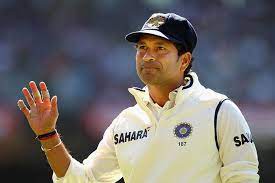Introduction
In the rich history of cricket, one name stands out as the embodiment of excellence, skill, and the driving force behind the evolution of the game. who is the father of cricket, widely known as W.G. Grace, is revered as the Father of Cricket. With his extraordinary talent, enduring legacy, and pivotal role in shaping the sport, W.G. Grace has rightfully earned this distinguished title.
Early Origins and Development of Cricket
Cricket’s origins can be traced back to the public schools of England, where it gradually evolved and became an integral part of British society. Initially, cricket was played between professionals known as Gentlemen and amateurs called Players. This distinction reflected the class-driven society of Victorian Britain during that era. The game provided an opportunity for amateurs to prove themselves and improve their lives.
W.G. Grace: The Beacon of Cricket
W.G. Grace emerged as a transformative figure in cricket, propelling the game to new heights and capturing the hearts of fans worldwide. His contributions as an exceptional all-rounder—equally skilled in batting, bowling, and fielding—paved the way for the modern era of cricket.
Unraveling the Legend of W.G. Grace
Born in Bristol in 1848, W.G. Grace not only left an indelible mark on the cricket field but also pursued a medical career, earning him the nickname “The Doctor.” However, it is his sporting achievements that have immortalized his name in the annals of cricket history.
W.G. Grace’s Cricket Career
Grace’s cricketing journey spanned an astonishing 44 seasons, demonstrating his unparalleled longevity and unwavering dedication to the sport. He played his entire county career for Gloucestershire and made notable appearances for teams such as the MCC and the Gentlemen. Moreover, he represented England in 22 test matches, leaving an indomitable impact on the international stage.
The Complete Cricketer
W.G. Grace’s batting prowess was a sight to behold. He amassed a staggering 54,211 runs in his illustrious first-class career, cementing his place as one of the most prolific batsmen of all time. His highest first-class score of 344 and the first triple century in the format were monumental achievements that showcased his exceptional skill and technique.
In addition to his batting prowess, Grace was a formidable bowler, claiming 2,809 wickets. His ability to contribute significantly with both bat and ball made him a true all-rounder, and his impact on the game was immeasurable.
Setting Records and Inspiring Generations
W.G. Grace’s domination of cricket extended far beyond his playing days. He set numerous records that stand testament to his extraordinary talent and influence on the game. His remarkable achievements include being the first English batsman to score a hundred on his test debut and the second overall. These milestones exemplify his groundbreaking contributions to the sport.
W.G. Grace: The Father of Modern Cricket
W.G. Grace’s unparalleled understanding of the game and his visionary approach to captaincy earned him widespread admiration. He played a pivotal role in establishing and popularizing modern batting styles, leaving an enduring legacy for future generations of cricketers to follow.
The Enduring Legacy of W.G. Grace
Even over a century since his retirement, the impact of W.G. Grace on cricket remains undeniable. His dedication, skill, and exemplary sportsmanship have left an indelible mark on the sport, inspiring countless cricketers to push the boundaries of excellence.
Conclusion
William Gilbert Grace, known as W.G. Grace, rightfully earns the title of the Father of Cricket. Through his exceptional talent, unwavering passion, and remarkable achievements, he transformed cricket into the global phenomenon it is today. His extraordinary legacy continues to inspire cricketers around the world, serving as a constant reminder of the remarkable impact a single individual can have on a sport. As cricket enthusiasts, we owe a great debt to W.G. Grace, the father figure of this beloved game.




